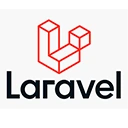Laravel provides a powerful validation system that goes beyond simple field presence checks. In this guide, we will explore advanced Laravel validation techniques to handle complex validation scenarios in your web applications.
1. Conditional Validation
Conditional validation allows you to apply validation rules based on the values of other fields. You can use the
required_ifrequired_unlessrequired_with'email' => 'required_if:notification_type,email',
'phone' => 'required_unless:notification_type,email',
'url' => 'required_with:website'
2. Custom Validation Rules
Laravel allows you to create custom validation rules by defining them in a service provider. You can encapsulate complex validation logic into custom rules and reuse them across your application.
Validator::extend('custom_rule', function ($attribute, $value, $parameters, $validator) {
// Custom validation logic here
return true or false;
});
3. Rule Objects
Laravel 5.5 introduced rule objects, which are classes that encapsulate validation logic. Using rule objects makes your validation code more organized and reusable.
use App\Rules\CustomRule;
$validator = Validator::make($data, [
'field' => [new CustomRule($value)],
]);
4. Form Request Validation
For complex validation scenarios, you can use form request validation classes. These classes contain validation rules and are automatically generated using Artisan.
php artisan make:request CustomValidationRequest
Then, define your validation rules in the generated request class.
5. Validation with Custom Error Messages
You can customize error messages for validation rules by passing an array of custom messages to the
Validator$validator = Validator::make($data, $rules, [
'field.required' => 'The field is required.',
]);
6. File Upload Validation
Laravel provides built-in validation rules for file uploads, including checking file size, file types, and custom validation logic for uploaded files.
'image' => 'image|mimes:jpeg,png|max:2048',
7. Validating Arrays
You can validate arrays of data using the
*'email.*' => 'email',
Conclusion
Advanced Laravel validation techniques enable you to handle complex validation scenarios with ease. By using conditional validation, custom rules, rule objects, form request validation, and other techniques, you can ensure that your application's data is validated accurately and securely.

